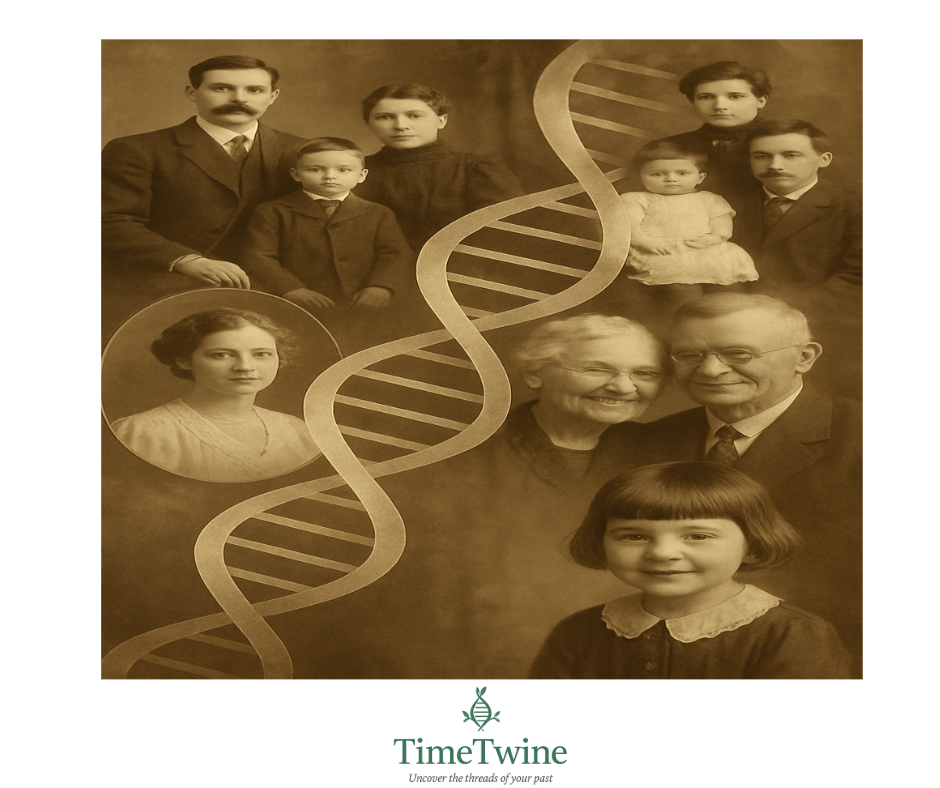Family History Is More Than Names and Dates
- Jo
- Jul 27, 2025
- 2 min read
Why Family History Matters for Your Health
People research their family history for all kinds of reasons: curiosity, fascinating stories, unexpected inheritances, or simply the thrill of solving a mystery. One important reason that’s often overlooked is health.

Understanding family history can reveal inherited medical conditions that may affect you or your descendants. For example, I carry the red-green colour blindness gene. With a colour-blind father, there was a 50% chance that one of my sons would also inherit it.
That’s because red-green colour blindness is an X-linked recessive trait, meaning:
The DNA responsible for this condition is located on the X chromosome.
Most biological males have one X and one Y chromosome (XY).
Most biological females have two X chromosomes (XX).
Males with the gene on their single X will be colour blind.
Females must inherit the gene from both parents to be affected.
Colour blindness can present challenges, especially in careers that rely on accurate colour perception, but many people adapt and thrive. Mark Zuckerberg, Bill Gates, Prince William, and Keanu Reeves are all colour blind, to name a few.
Another well-known X-linked condition is haemophilia, famously traced through Queen Victoria’s descendants. But not all hereditary conditions are X-linked. Some follow other patterns of inheritance and can affect many different body systems, from the nervous system to the heart.
Here are some genetic conditions that are valuable to record and monitor in your family history:
Common Hereditary Conditions Worth Noting
Cystic fibrosis – Affects the lungs and digestive system, leading to chronic respiratory issues.
Sickle cell disease – Alters red blood cells, causing pain, fatigue, and complications.
Huntington's disease – A progressive neurological disorder impacting movement, cognition, and mental health.
Marfan syndrome – Affects connective tissue; may impact the heart, joints, and eyes.
Tay-Sachs disease – A rare, fatal disorder that affects the nervous system, typically in infancy.
Polycystic kidney disease (PKD) – Causes fluid-filled cysts in the kidneys, potentially leading to kidney failure.
Muscular dystrophy – A group of diseases that cause progressive muscle weakness.
Down syndrome – A chromosomal condition associated with intellectual and developmental delays.
Klinefelter syndrome – Affects males, often causing reduced fertility and physical differences.
Turner syndrome – Affects females, impacting growth, development, and reproductive health.
Ehlers-Danlos syndrome – Impacts connective tissue, leading to hypermobility and fragile skin.
Cleft lip and palate – A congenital condition affecting the formation of the upper lip and roof of the mouth.
Alzheimer's disease – While not always inherited, certain gene variants increase risk.
Hereditary cancers – Mutations in genes like BRCA1 and BRCA2 can increase the risk of breast, ovarian, and other cancers.
Beta-thalassemia – A blood disorder that reduces hemoglobin production.
Arrhythmogenic right ventricular dysplasia (ARVD/C) – A heart condition that increases the risk of arrhythmia and sudden cardiac death.
Brugada syndrome – A genetic heart rhythm disorder.
Charcot-Marie-Tooth disease – Affects peripheral nerves, leading to muscle weakness and balance problems.
Familial adenomatous polyposis – Causes colon polyps and increases colorectal cancer risk.
Understanding your family's medical history can be a powerful tool for prevention, early detection, and informed decision-making. It’s another valuable thread in the rich tapestry of your past and a gift to future generations.





Comments